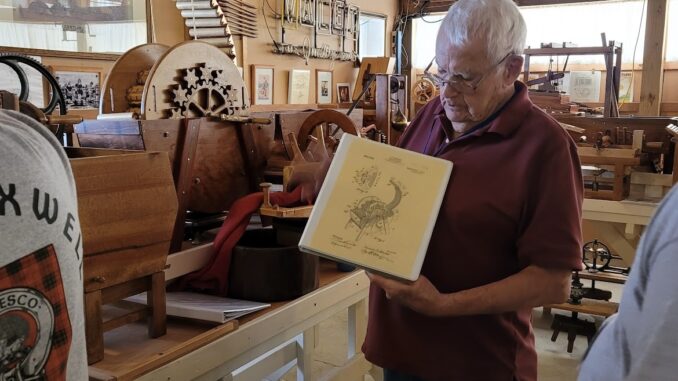
Jonson Kuhn | North Forty News
Lee Maxwell of Weld County is a pretty interesting guy with deep family roots planted in the soils of Northern Colorado. In 1923 Lee’s grandfather, Robert G. Maxwell, leased a portion of his land to CSU, (back when it was still called Colorado Agricultural College) where the Aggie’s famous “A” is painted. Lee’s grandfather leased the land to the school for only one dollar for a 99-year contract and the only requirement at the time was that students and faculty keep the gates shut so Maxwell’s bulls wouldn’t get out.
Furthermore, Overland Trail that runs along the Foothills once upon a time was called Maxwell Road when Lee’s uncles used to reside there. With a family name that carries that much history, you can imagine that family reunions must be quite the event, and this year’s reunion was no exception. Lee, a retired Colorado State University electrical engineering professor, could have just as easily been a history professor due to his efforts to ensure the past is never “washed” away.
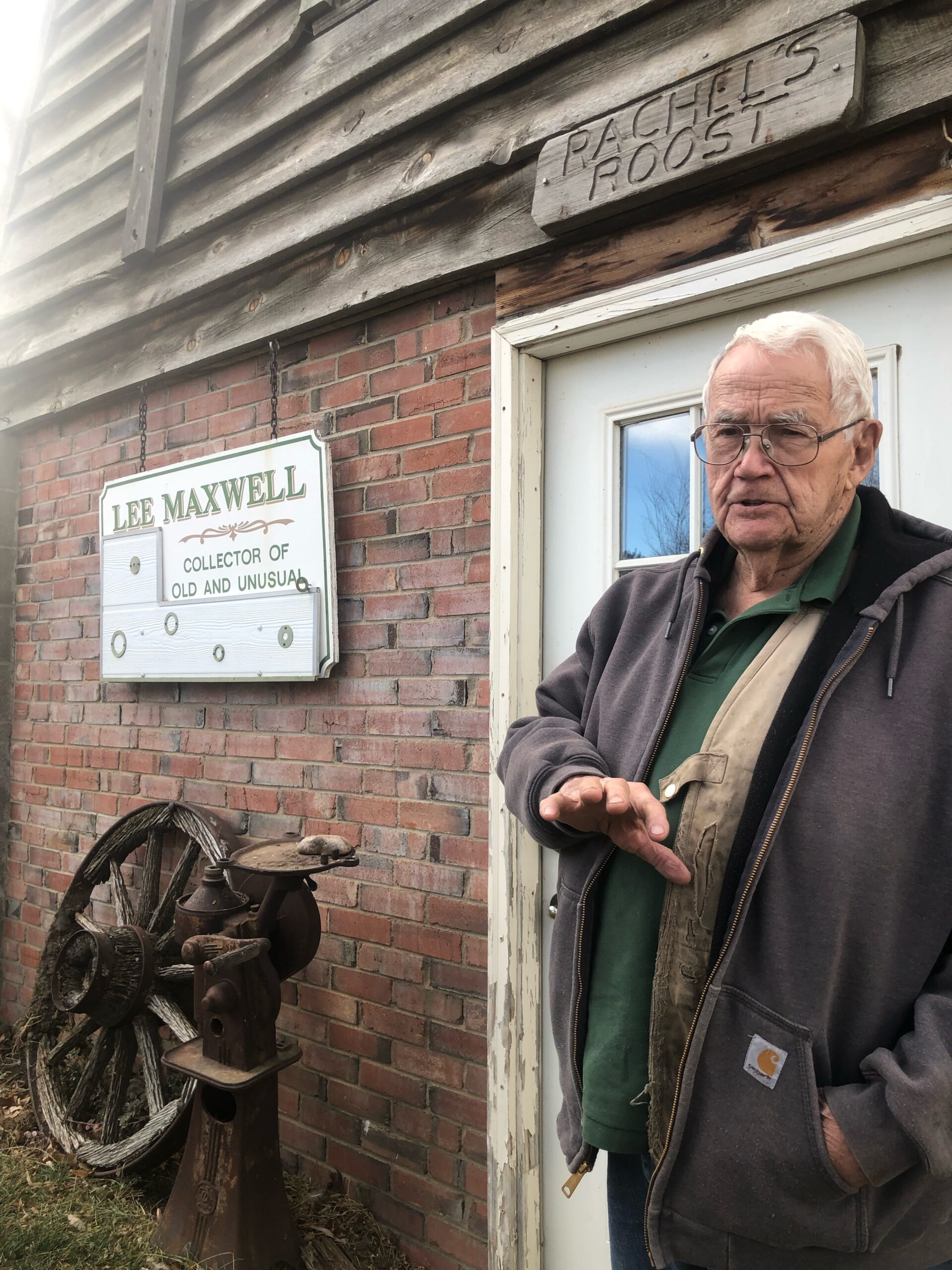
For the past 40 years, Lee has collected rare postcards illustrating the lost art of Scotch Washing, which was an old Scottish practice of washing clothes that involved women tramping the clothing by foot in a tub. The practice was actually banned from taking place in public in the 17th Century because the City Fathers of Glasgow found it to be too salacious seeing the women pulling their petticoats up over their knees in order to tramp the clothes clean.
So, for this year’s Maxwell family reunion, and to honor their Scottish heritage, Lee organized (what he assumes) was the first public display of Scotch Washing since it was banned so many years ago…but don’t worry, no police were involved.
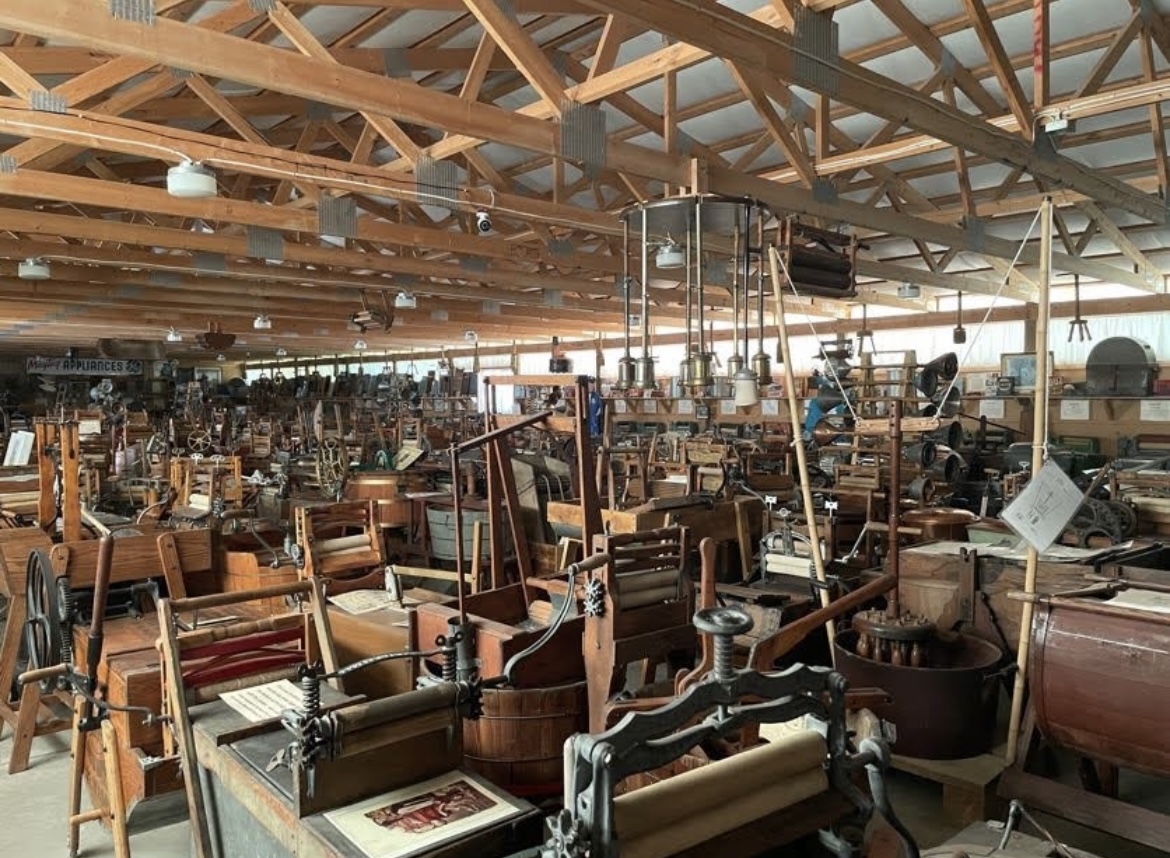
“The Maxwell name comes from my great great grandfather who immigrated to America in 1812. He came from Dumfries and the Maxwell family was friends with (Scottish Poet) Robert Burns in the old days. And I guess it’s because of the Scottish heritage that I eventually became a collector of these Scotch Postcards,” Lee said. “The demonstration we just did for our family reunion, to my estimation is the only live demonstration of Scotch Washing you’ll be able to find.”
For all the history that the Maxwell name carries, Lee himself is actually known quite well for something specific all on his own, you guessed it: washing machines. Lee is the proud owner and operator of Lee Maxwell Washing Machine Museum in Eaton, where he displays the world’s largest washing machine collection.
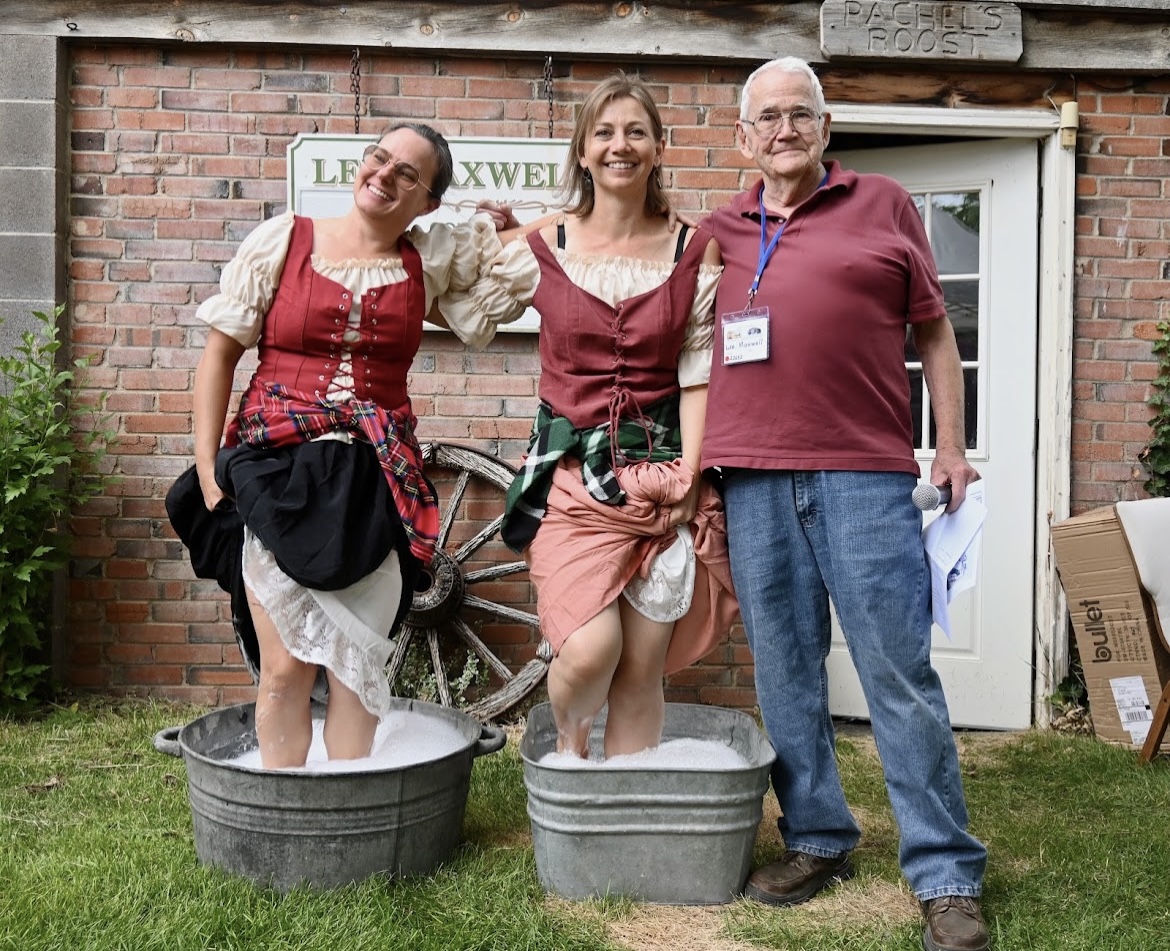
In fact, Lee has so many washing machines he was awarded the Guinness World Record for the world’s largest washing machine collection back in 2000. Most of the antique machines are stored on his farm in a 20,000-square-foot building, which, in a fitting fashion, is decorated to look just like an antique laundromat.
“I’ve always been interested in older stuff. When my wife and I retired in 1985 we bought a motorhome and headed toward Maine just for a retirement trip, and halfway into Iowa we stopped for lunch in what turned out to be a farm auction and I was interested in an old Maytag I saw there. So, I raised my hand and I bought it, put it on top of the motorhome, and by the time we got to Maine I had four of them. In Maine, I bought some more and ended up having to buy a trailer to carry them all. By the time we made it back home, I had 13 total and those were the first washing machines I ever purchased and the rest from there is history,” Lee said.
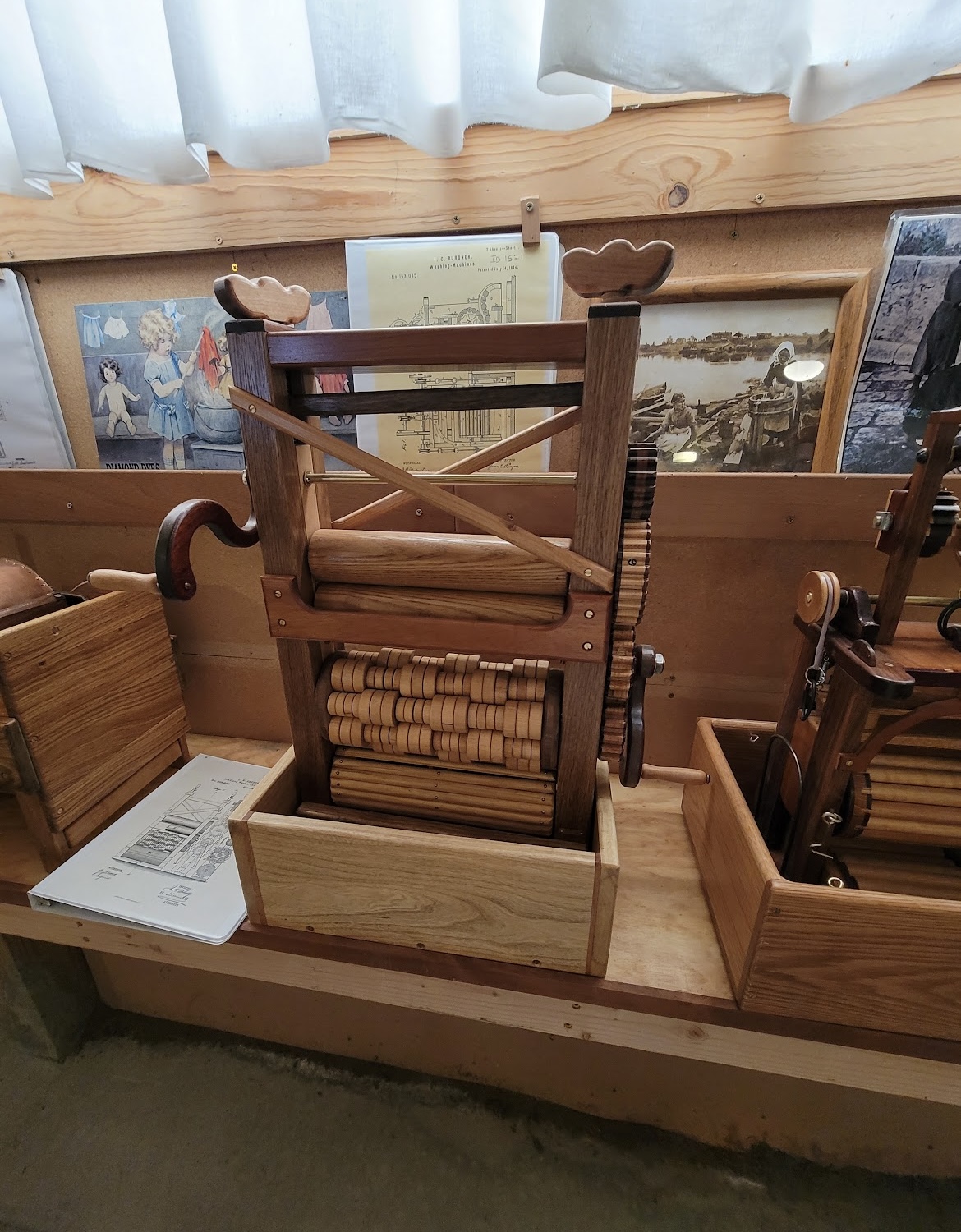
Since that time, Lee’s been in every state in the country to help grow his collection, which now consists of more than 1,400 antique washing machines from as early as 1840. Most of them were manufactured in the United States, but he’s even managed to find them all over the world in such places as Austria, Australia, Canada, France, Germany, and Great Britain. For the most part, he’s disassembled, cleaned, and reassembled almost every machine, however, there’s still another barn full of machines not yet revived that he lovingly refers to as “ladies in waiting.”
To Lee, they’re far more than just machines and he feels strongly that their historical importance is all too often overlooked. He feels so passionately about the subject, in fact, he has a book published entitled Save Women’s Lives: History of Washing Machines, which is the first and only book containing a comprehensive history of washing machines, full of over 200 color pictures of washers dating from the early 1800s. Lee believes machines played a significant role in women’s rights.
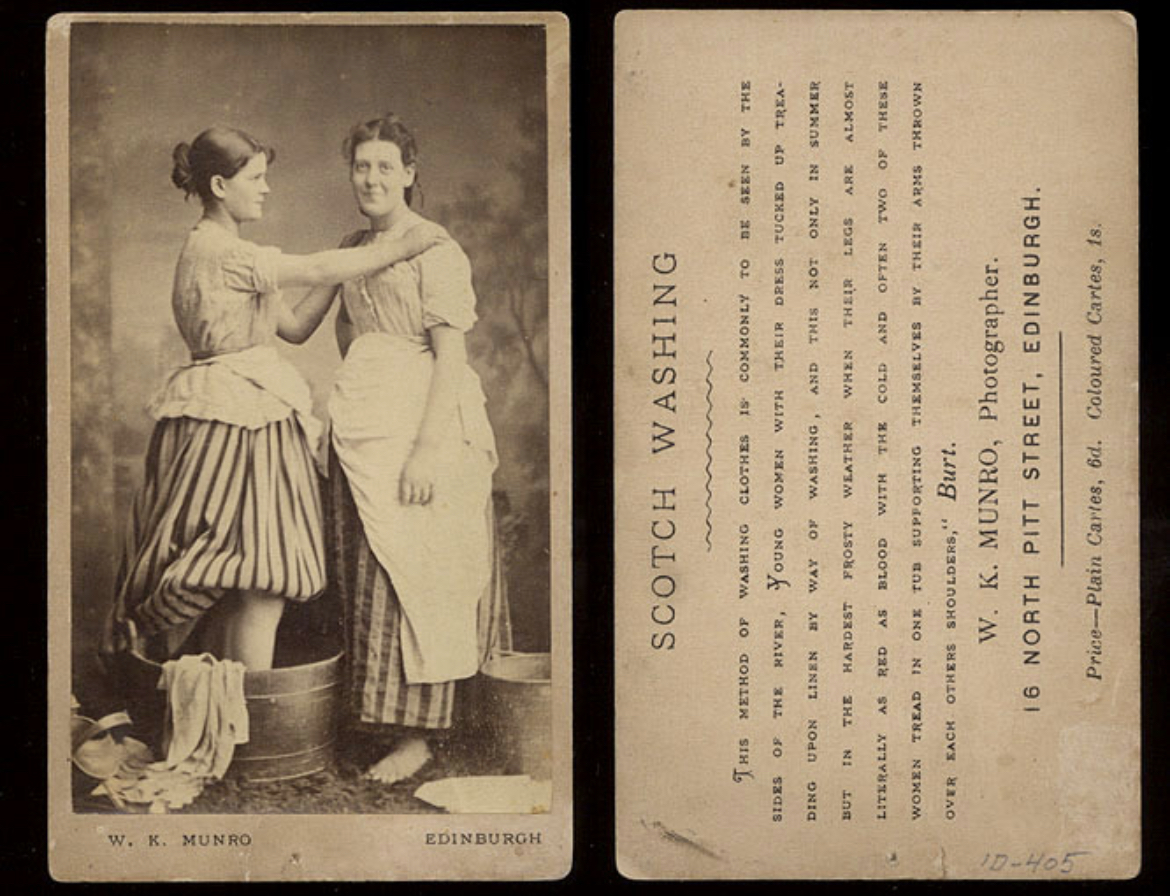
Though he doesn’t advertise it, the museum is open for guided tours. If you’re interested in arranging a tour, you’re asked to call (970) 454-1856 or email lee@oldewash.com. The cost of admission for groups with up to 10 people is $75. The charge for each additional person is $7.50. Each tour lasts for roughly two hours and the scheduled times are typically at 9:30 am or at 1:30 pm. Keep in mind, however, that tours are not conducted during colder months, so best to book your date during the summer. More information can be found by visiting oldewash.com.
Lee, who just turned a dyslexic “29” years old, hopes to someday be able to give his museum away to the right people under the right circumstances and see it hold onto the historical and educational value it has to offer. While his children and grandchildren are fascinated by what he does, ultimately, Lee says you’d have to be “insane to live and breathe this stuff.”
“I’d like to give them away to some entity that would maintain the history of the evolution of the washing machine. I’d like to see it associated with some sort of educational activity because there’s a lot of history, manufacturing, all kinds of neat stuff,” Lee said. “It’s kind of like Scotch Washing, you think ‘who would ever want to come to a washing machine museum?’ But then when they get here, they feel differently.”
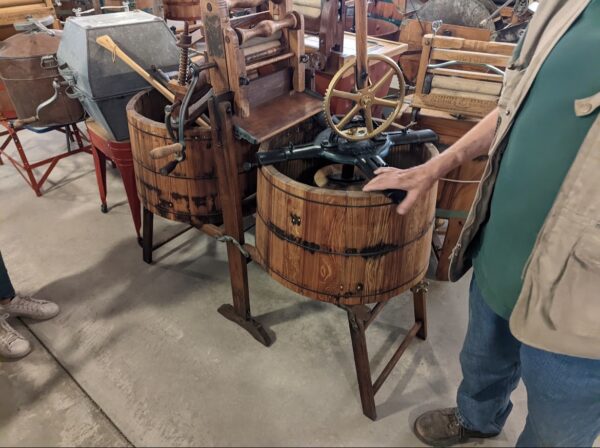
Support Northern Colorado Journalism
Show your support for North Forty News by helping us produce more content. It's a kind and simple gesture that will help us continue to bring more content to you.
BONUS - Donors get a link in their receipt to sign up for our once-per-week instant text messaging alert. Get your e-copy of North Forty News the moment it is released!
Click to Donate